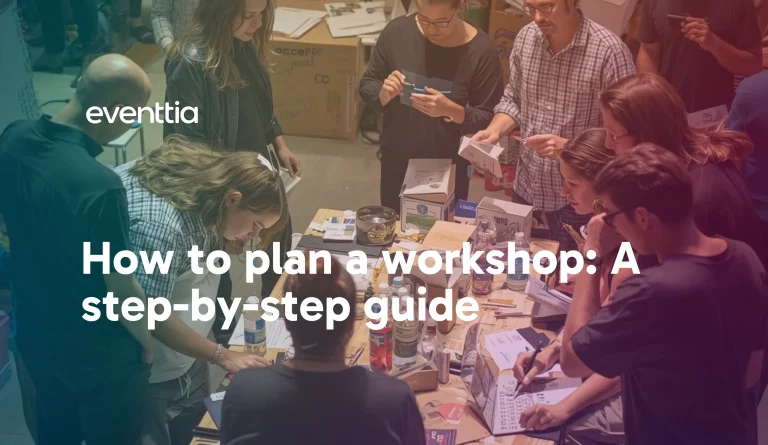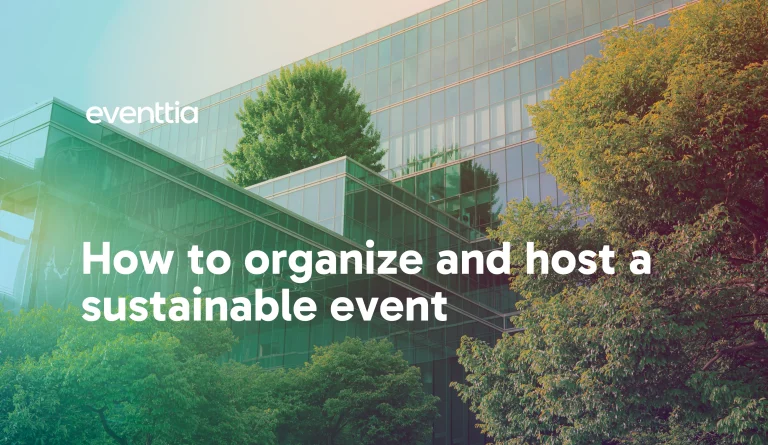Whether brick-and-mortar or online, retail company executives constantly look for ways to attract and retain new customers. Standing out from the rest, increasing brand awareness, and communicating value are becoming crucial for survival, regardless of the retail industry or niche. No wonder why. The global retail industry will be around 31.7 trillion U.S. dollars by 2025.
The continuous growth translates into higher competition which subsequently involves the need for differentiation and innovation in marketing. And while traditional marketing is undoubtedly efficient, companies may need help to build an overflowing opportunity pipeline and a loyal customer base.
In most cases, traditional marketing involves one-way communication, limiting the engagement and interaction between a retail brand and its audience. However, engagement is crucial to building long-lasting relationships and nurturing customer trust.
One promising solution is developing a recurring events strategy that offers unique opportunities to connect with people, showcase products, and drive sales growth. Of course, implementing a recurring events strategy takes time and effort, and it’s crucial to do so in a way that aligns with the company’s goals and values. But when executed correctly, it can provide various advantages that will subsequently translate into higher revenue.
What’s a Recurring Event?
Compared to one-time events, recurring events happen regularly, such as weekly, monthly, or annually, and are typically part of a specific series that includes multiple editions. Recurring events are popular among retail businesses and organizations that want to establish a consistent presence and build a community around their brand or cause.
Retail companies can transform every single type of event into a recurring phenomenon. Every event can transform into an impactful recurring series, from pop-up shops and conferences to seminars and award ceremonies.
By promoting these events well in advance and offering incentives for attendees to return, retail companies can create a sense of anticipation and excitement that keeps people returning for more. Additionally, recurring events can be adapted and improved based on participant feedback, ensuring that each edition is better than the last.
The Characteristics of Recurring Events
Apart from having a specific frequency, recurring events may involve different characteristics, such as:
- Branding: Usually, recurring events can be transformed into a full-fledged trademark associated with the retail company that runs them. This can help establish your retail brand as a particular industry or market segment leader. Creating a unique and memorable event brand allows you to differentiate yourself from competitors and build a loyal following among attendees.
- Scalability: Running recurring events equals scaling your events strategy. But it shouldn’t stop there. For example, you can increase the frequency of your recurring event from monthly to bi-weekly. It all depends on your resources and your business goals.
- Adaptability: Thanks to the attendee feedback you’ll receive from your previous editions, recurring events leave space for improvement, experimentation, and innovation. This will help you fine-tune the event experience, introduce new features, or test new concepts and ideas. By continually improving the event over time, you can keep attendees engaged and interested and attract new participants who may have been hesitant to attend. This iterative process of innovation and improvement can help ensure the long-term success and sustainability of the event and create a lasting legacy that extends far beyond the individual editions of the event itself.
- Compound impact: Recurring events have a compound impact that builds over time as each edition reinforces the message, nurtures the community, and generates momentum for future editions. This can lead to a snowball effect, where your event becomes more successful and influential each year, attracting more attention and support from stakeholders and participants.
Focusing on these characteristics and continually improving the event experience can create a lasting legacy and achieve your broader business goals.
Benefits of Running Recurring Events
Recurring events can be a powerful tool for retail companies and conglomerates looking to differentiate themselves. Here’s why:
→ Increase brand awareness
Establishing a unique event brand that becomes associated with your retail company is one of the key benefits of recurring events. Just think about it: when promoting a one-time event, you can generate a decent amount of buzz that will die off once your conference or workshop ends.
On the other hand, recurring events will help you gain recognition in time and create an entire marketing machine associated with the new editions. With a recurring events strategy in place, you’ll be able to drive more and more attention to your company and products.
Just think about it: past edition attendees will come again and bring their friends or co-workers. Also, you’ll be able to reach out to stellar speakers and even promote your edition to these speakers’ audiences. Compared to other marketing campaigns, recurring events highly establish a unique presence in your industry or market segment, increasing brand awareness.
→ Cultivate brand affinity
Recurring events can be a powerful tool for retail companies to build brand affinity among their target audience. Retail companies can create a positive and memorable impression on their audience by hosting regular events, such as product launches, pop-up shops, or in-store workshops. These events allow customers to engage with the brand meaningfully through hands-on experiences, exclusive product access, or the chance to meet and interact with brand representatives.
This, in turn, can lead to increased brand affinity and advocacy, as customers are more likely to recommend a brand they feel connected to and trust.
→ Create and deliver experiences
Like it or not, people are more interested in retail brands offering products and memorable experiences. According to a report by Westfield, “59% of shoppers expect the majority of retail space to be dedicated to offering up experiences by 2025. By 2027, 75% of shoppers expect to see this. With 81% of customers globally willing to pay more for experiences, the retail tipping point is likely to drive revenue growth for experiential retailers in the future.”
How can you deliver these experiences, especially if your products don’t leave space for too much creativity? Running recurring events is the answer. Events are experience-driven, and they will provide unique settings, activities, and contexts to your audiences. For example, a retail company may generate new experiences by organizing recurring bicycle rides for their customers or offering recurring guided facility tours to their most loyal customers.
All these companies and product-related experiences will strengthen the interest of your audience, and it will help them connect emotionally with your retail brand. Subsequently, this will translate into higher sales rates.
→ Ensure ongoing engagement
How do you keep your audience engaged? How do you ignite and nurture your conversations with leads, prospects, and customers? The ongoing interaction with your brand is crucial to stay on people’s top of minds. Engaging with people will not only show you care about them, but also it will provide essential insights into what their challenges are and what they want most.
Personalization is another key factor in keeping your audience engaged. By tailoring your communication and content to your audience’s specific needs and interests, you demonstrate that you understand their unique challenges and are committed to providing solutions that meet their needs.
Running recurring events is a powerful way to ensure ongoing engagement and stay connected with your audience. Whether through Q&As, discussions, or interactive tools, recurring events foster meaningful conversations.
→ Build trust and long-lasting connections
Retail companies can create a sense of community and foster a deeper relationship with their audience by hosting regular events, such as product launches, in-store workshops, or customer appreciation days.
These events enable customers to engage with the brand more personally and meaningfully, allowing them to interact with the company on a human level.
Also, retail companies can build stronger relationships and establish themselves as trusted advisors by actively listening to their audience and responding to their needs. This can increase customer loyalty and advocacy, as customers are likely to recommend a brand they trust and feel connected to.
Wrap-up
Whether you’re part of a small retail brand, looking to build your customer base, or a multi-brand conglomerate seeking to nurture a community of thousands of members, a recurring events strategy will always be the go-to framework for revenue growth and recognition and business expansion.
Discover how Eventtia helps world-leading brands digitize and scale their events
Learn moreShare





